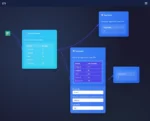In the digital age, data is both an immense opportunity and an unprecedented responsibility. Businesses are increasingly driven by analytics to enhance customer experience, optimize operations, and innovate products. However, as data flows expand globally, so too does the complexity of privacy laws designed to protect individual rights. Navigating these stringent regulations while maintaining robust analytical processes has become a strategic imperative for today’s forward-thinking enterprises. This intersection of compliance and analytics creates a complex challenge, but also opens up proactive opportunities for organizations that adopt a privacy-by-design approach. Understanding data privacy regulations isn’t just about avoiding penalties; it’s about establishing trust, innovating responsibly, and maximizing competitive advantage through data-led strategies.
The Global Landscape of Data Privacy Regulations
Across the globe, businesses now face a maze of intersecting data privacy mandates that constantly evolve. Chief among these is Europe’s General Data Protection Regulation (GDPR), a sweeping regulatory framework aiming to empower individuals by giving them control over their personal data. GDPR has set the tone globally for stringent privacy compliance, mandating explicit consent, data portability, and rigorous protection mechanisms. Non-compliance can result in fines as high as 4% of annual global revenue—a penalty significant enough to disrupt business operations severely.
Simultaneously, the California Consumer Privacy Act (CCPA) and its successor, California Privacy Rights Act (CPRA), have emerged quickly in the United States, leading to additional complexity. Both regulations grant consumers control over personal data, mandating transparency into how data is collected, stored, and shared. Similarly, regulatory mandates in Brazil (LGPD), Canada (PIPEDA), and others add further complexity. These frameworks underscore a global shift that recognizes privacy as an essential human right, significantly impacting analytics by imposing strict obligations around data collection, processing, and retention. Consequently, multinational organizations must approach analytics initiatives with strategic foresight, fostering a pro-active stance toward both local compliance and global interoperability.
The Practical Impact on Analytics and Data Processing
The increasing rigor of global privacy legislation directly impacts how organizations collect, store, and utilize data. Data privacy regulations necessitate transparency, explicit consent, minimal data retention, and strict adherence to defined purposes for data usage. For analytics teams, this means revisiting processes to ensure they collect only necessary data, anonymize or pseudonymize sensitive information, and establish clearer, auditable trails of data lineage and processing steps. These requirements can initially seem daunting but, if properly addressed, can strengthen analytical rigor and stakeholder trust in data-driven decision-making.
By implementing robust data governance frameworks and incorporating privacy-by-design principles, businesses not only mitigate compliance risks but also enhance data quality. Methods such as data minimization, semantic modeling, and rigorous data cataloguing become indispensable in ensuring regulatory compliance. To understand more about the role semantic layers play in analytics, explore our comprehensive guide on What is a Semantic Layer and Why Should You Care 🚀. Furthermore, organizations need to clearly differentiate analytics processes managed internally versus through third-party services, carefully monitoring data flows across geographic boundaries to align analytics practices with global privacy standards dynamically.
Transforming Compliance into Competitive Advantage
While many organizations initially see data privacy regulations as obstacles, leading enterprises are leveraging them strategically. Transparent compliance and proactive commitment to privacy build customer trust, enhancing brand reputation and consumer loyalty. By gaining customer confidence, businesses can actually increase the effectiveness of their analytics initiatives, enjoying higher customer engagement, reduced churn, and more accurate data inputs—a fundamental source of analytics excellence.
Companies can further empower their analytics teams by investing in technology infrastructures specifically designed around regulatory compliance, interdisciplinary collaboration, and automation. Leveraging advanced database technologies such as MySQL can streamline these compliance-oriented data strategies, making it pivotal to engage with technology experts. We regularly assist customers in optimizing their database infrastructure through our tailored MySQL Consulting Services, which deliver scalable, secure, and regulatory-compliant data analytics solutions.
Moreover, integrated analytics training and collaborative working sessions can significantly reduce miscommunications around compliance expectations and data governance practices. Learn how structured collaborations can streamline your analytics projects by exploring our insights on Working Sessions to Reduce Miscommunication in Analytics Projects.
Technological Adaptations to Maintain Analytics Momentum
Addressing complexity brought on by global privacy regulations doesn’t mean sacrificing innovation or data-driven improvements. With adapted analytical methodologies, organizations can maintain their analytical momentum. Techniques like federated learning, privacy-preserving analytics, and differential privacy enable extraction of valuable insights without compromising individual privacy. These methods use advanced algorithms and decentralized data access patterns to aggregate analytics capability and reduce data exposure risk, meeting compliance standards while maintaining data-driven innovation.
The rise of asynchronous, event-driven tech architectures also helps minimize data processing risks. An incredibly effective platform like Node.js reduces unnecessary complexity and enables efficiency at scale due to its non-blocking, asynchronous processes. Discover more about how Node.js streamlines analytics projects and complies with SEO best practices in our guide to Understanding Node.js Single Processor Execution and its Asynchronous Superpowers in SEO. Embracing such innovative technologies allows businesses to remain agile, scale fast, and deliver analytics that respect privacy, ensuring compliance is seamlessly integrated within the tech strategy from day one.
Building a Future-Ready Analytics Culture
Ultimately, compliance with data privacy regulations goes beyond just ticking boxes—it calls on organizations to fundamentally rethink their analytics culture. An effective analytics culture focuses equally on robust data ethics, transparency, accountability, and continual improvement of privacy and compliance frameworks. Leadership must communicate clearly through company-wide privacy training, workshops, and a culture of constant learning to ensure teams stay agile and responsive to regulatory changes.
Regularly reviewing and adapting your internal analytics workflows and technologies ensures your organizational data strategy remains compliant, resilient, and capable of capturing long-term competitive advantage. Encouraging collaborative working sessions across divisions can foster alignment and clarity around privacy regulations, analytics methodologies, and strategic objectives. Engaging professional analytics consultants can accelerate these transformations, ensuring your business remains agile and competitive.
By strategically embedding privacy-sensitive practices into daily operations, organizations not only future-proof their analytics capabilities but also differentiate themselves competitively by showcasing their responsible use of data—a decisive factor in modern consumer perceptions and market success.
Conclusion: Privacy and Analytics as Partners, Not Rivals
In an era where customer expectations around data transparency and privacy continue to increase, successful enterprises understand privacy regulations aren’t merely compliance checkboxes—they’re powerful drivers that shape robust, trusted analytics strategies. When navigated wisely, these regulations become catalysts for innovation, excellence, and long-term competitive advantage. Embedding privacy at the heart of your analytics strategy positions your enterprise to thrive in today’s data-centric marketplace, earning essential trust and delivering sustainable analytical value amid evolving regulatory landscapes.
Partnering strategically with expert analytics, database consulting, and tech advisors can simplify these complexities, empowering your organization to navigate confidently and innovate sustainably.

























